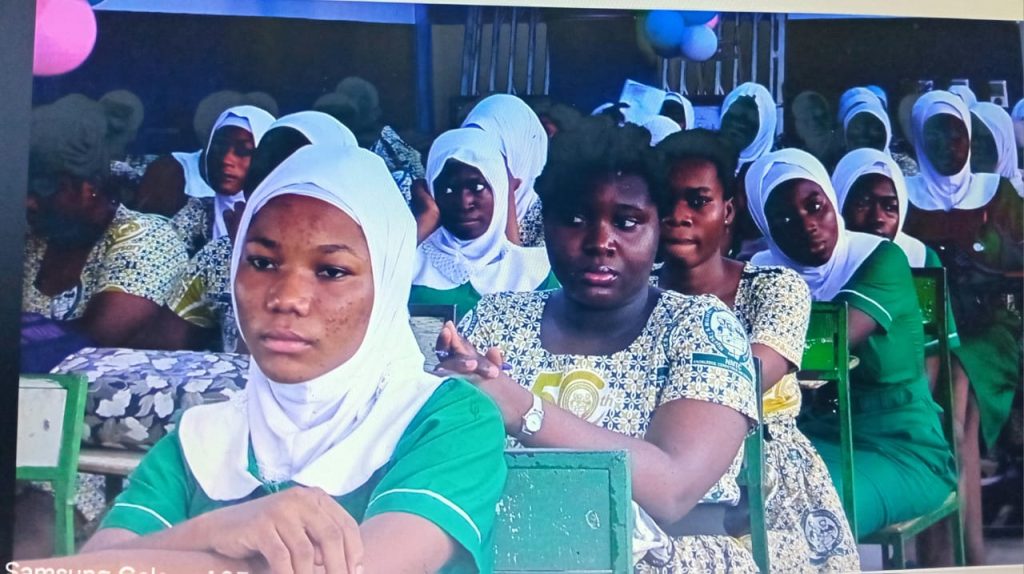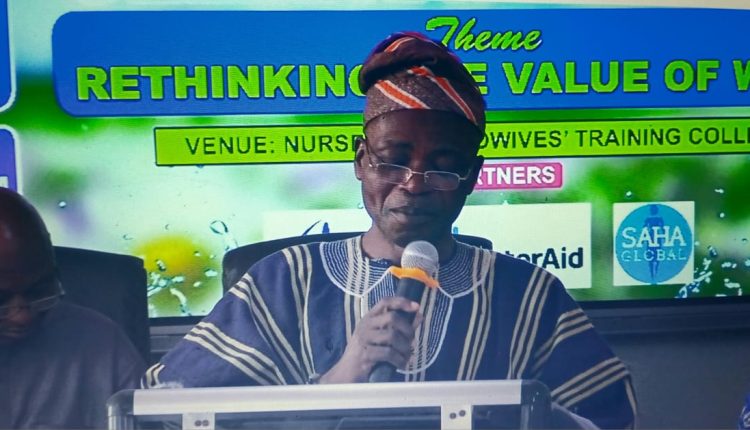Water quality remains a major challenge in both developed and developing countries, affecting millions of people who rely on it for survival. As Ghana joins the rest of the world to mark World Water Day, the Water Research Institute (WRI) of the Council for Scientific and Industrial Research (CSIR) is calling for urgent action to improve water quality in the Tamale Metropolis.
Speaking at an event held at the Tamale Nurses’ and Midwives’ Training College, Dr. Emmanuel Mensah, Officer-in-Charge at CSIR-WRI, expressed concern over unsafe water sources in the Greater Tamale area.
“As a people, especially within the Tamale Metropolis, we should be concerned about the safety of our water. How can we have water, yet it is not safe for us to drink?” he questioned.
Dr. Mensah emphasized that while access to clean and secure water is essential to Ghana’s growth and development, the attitudes and behaviors of citizens do not reflect a strong commitment to preserving this vital resource.

This year’s World Water Day event brought together key stakeholders and partners in the water and sanitation sector, along with nursing students from the Tamale School of Hygiene and the Nurses’ and Midwives’ Training College. The platform was used to educate and empower students to become advocates for water safety and conservation in the Tamale Metropolis. The theme for the event was “Rethinking the Value of Water”, aimed at ensuring long-term water security in the region.
Dr. Mensah underscored the significance of clean water to human existence, stressing that poor water quality in Tamale has a devastating impact on livelihoods, particularly in rural areas. He called for urgent intervention to address this crisis.
Government’s Commitment to Solving Tamale’s Water Crisis
The Northern Regional Minister, Ali John Adolf, assured residents that plans are underway to resolve the water shortages in Greater Tamale. He reiterated the government’s commitment to finding a lasting solution to the crisis.
“Our government is committed to ending the Tamale water crisis. As outlined in our manifesto, we have a permanent solution in place. In the meantime, we are working hard to upgrade the obsolete equipment of the Ghana Water Company Limited (GWCL) to ensure a steady water supply,” he stated.
Access to clean water is a fundamental human right, yet millions of people worldwide continue to struggle with water insecurity. In Tamale, residents have been experiencing severe water shortages for months, a situation worsened during the ongoing holy month of Ramadan.
Globally, over 2.2 billion people lack access to safe drinking water, highlighting the urgency of the issue. As Ghana works towards achieving Sustainable Development Goal (SDG) 6, which seeks to ensure universal access to clean water and sanitation by 2030, questions remain: Will Ghana meet this goal? What immediate measures will be taken to address the pressing water crisis in Tamale?
Source: Lilian Walter/zaaghana.com
Bottom of Form


